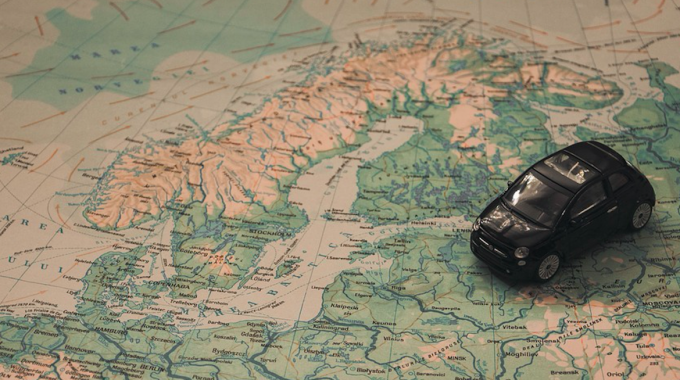
So diverse, yet so much in common
The second of the four European paradox addressed by Evert van de Poll. This is a draft of the future reedition of his book ‘Europe and the Gospel’ (1st part here)
We have in Europe a great number of peoples and nation states living apart but together. They are very different from each other.
Don’t say to the Swiss in Zürich that they are German even though they speak the same language more or less. Within the one United Kingdom, people are very conscious of being Scottish, English or Welsh. When crossing the Pyrenees, one is struck by the distinction between Catalans and what they call ‘Castilian Spaniards’. Greeks and Macedonians are neighbours but worlds apart, as are Serbs and Croats, Poles and Lithuanians, Flemish and Walloons, Sicilians and Milanese.
Consider the number of independent nation states, forty-eight in all. Look at their different customs, listen to their different languages. Yet we call them ‘European’ languages, as distinct from other languages.
We Europeans are a diverse lot of people groups and states, a mixed lot, as varied as the multicoloured coat of Joseph. Each national identity within the geographical confines of Europe has its specific characteristics, not to mention the regional identities that in some cases are even stronger. All of them have a flavour of their own. Our history is marked by borders, warfare, front lines, rival alliances, walls of partition, and so on. Empires, nations and people-groups have fought bitter wars and ravaged each other’s territories. While we deplore this, we are still divided over an endless series of issues, especially when it comes to reaching economic unity, let alone political integration.
Nevertheless, Europeans have so much in common, as compared to other regions of the world. It is not easy to exactly define this common ground, but many people all over the continent are aware of some sort of underlying that makes us ‘Europeans’. This is what we call the idea of ‘Europe’ in inverted comma’s, a sense that all the various peoples and countries of the continent belong together.
This is not a recent phenomenon. In the past, when Europeans were faced with cultures they found alien, they have persistently described themselves not merely as British or German or Spanish but also as ‘we Europeans’. Francis Bacon for example used that expression (nos Europai), writing in 1623, the time of the explorers and the discovery of new worlds.
Today, the same feeling still exists. One only has to travel abroad to become aware of that. In a hotel lobby in Nairobi, for example, the Finnish and Dutch and Spanish tourists recognise each other as ‘Europeans’, and in the eyes of the local people, they are indeed; they are perceived as being one lot.
When we travel across the continent, we still feel reasonably at home, Despite differences things appear reasonably familiar, as compared to what we experience when we travel outside Europe. Then we have the impression that we have left ‘our’ cultural zone and ended up in another cultural world. At a superficial level, we see many resemblances, in a globalised world, all airports and tourist resort centres look the same. But at a deeper level which tourists can only barely touch, there is a world of difference.
Based on the feeling that what ‘we’ in Europe have in common is more than what divides us, there is the ideal of working together in peace, or even to go as far as to seek unity, continental-wide.
Throughout the ages, there have been several attempts to realise this ideal, the present European Union being the latest one, and arguably the most successful one to date.
Here then is the second paradox. We are diverse and divided, yet at the same time we are collectively called ‘Europeans’. In other words, there is a ‘unity in diversity’, to quote the well-chosen motto of the EU. However, it also indicates the paradoxical nature of Europe and the sheer impossibility to create a kind of United States of Europe. This remains a distant dream as long as we remain as attached as we are to our various cultural, linguistic and national identities. At the same time, we do not manage to expel the dream, or at least the idea that we should overcome our divisions. For all our national prejudices, we can’t help feeling that we are indeed Europeans. This is our paradoxical reality, which we should always take in account when thinking about the future of our continent. We should learn to live with it.
Evert van de Poll
Professor of Religious Science and Missiology at Evangelical Theological Faculty, Leuven and a pastor with the French Baptist Federation.

This Post Has 0 Comments